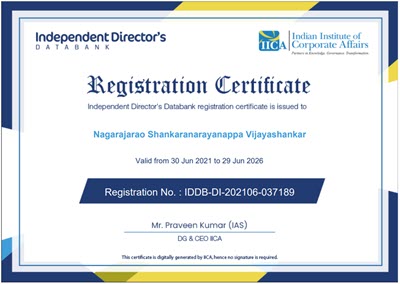Way back in March 2015, the Supreme Court in its judgement said that Section 66A of ITA 2000/8 as unconstitutional because it curtails Freedom of Speech. However, the Government had not passed any amendment of law to remove the section. Subsequently, on several instances, some Courts and Police continued to use Section 66A ignoring the Supreme Court observations by ignorance or otherwise.
Now in 2022, Government seems to have decided to formally pass an amendment to remove the Section from ITA 2000/8. Along with it, several other sections of ITA 2000 and many other laws have also been amended to remove select portions with an intention to de-criminalize certain aspects of law considered as minor offences.
For this purpose, the Government has introduced a bill titled Jan Viswas (Amendments of Provisions) Bill 2022
About 42 laws have been amended in this Bill including ITA 2000, Trademark Act, Copyright act, Patent Act, PMLA, Motor Vehicles Act, Payment and Settlements Act etc.
In particular, the following changes have been made in ITA 2000.
(A) In section 2, in sub-section (1), in clause (e), for the long line, the following shall be substituted, namely:—
“the State Government, and in any other case—
(I) relating to relevant provision, or a computer resource, which is controlled by the respective Ministry or Department of the Central Government, such Ministry or Department; or
(II) not covered under sub-clause (I), the Central Government;”.
(B) In section 33, in sub-section (2), for the words “punished with imprisonment which may extend up to six months or a fine which may extend up to ten thousand rupees or with both”, the words “liable to pay penalty which may extend to five lakh rupees” shall be substituted.
(C) In section 44,—
(i) in clause (a), for the words “one lakh and fifty thousand”, the words “fifteen lakh” shall be substituted;
(ii) in clause (b), for the words “five thousand”, the words “fifty thousand” shall be substituted;
(iii) in clause (c), for the words “ten thousand”, the words “one lakh” shall be substituted.
(D) In section 45, for the words “compensation not exceeding twenty-five thousand rupees to the person affected by such contravention or a penalty not exceeding twenty-five thousand rupees”, the following shall be substituted, namely:—
“penalty not exceeding one lakh rupees, in addition to compensation to the person affected by such contravention not exceeding—
(a) ten lakh rupees, by an intermediary, company or body corporate; or
(b) one lakh rupees, by any other person.”.
(E) In section 46, in sub-section (1), for the words “under this Chapter”, the words “under this Act” shall be substituted.
(F) Section 66A shall be omitted.
(G) In section 67C, in sub-section (2), for the words “punished with an imprisonment for a term which may extend to three years and also be liable to fine”, the words “liable to pay penalty which may extend to twenty-five lakh rupees”
shall be substituted.
(H) In section 68, in sub-section (2), for the words “on conviction to imprisonment for a term not exceeding two years or a fine not exceeding one lakh rupees or with both”, the words “to pay penalty which may extend to twenty-five lakh
rupees” shall be substituted.
(I) In section 69B, in sub-section (4), for the words “three years and shall also be liable to fine”, the words “one year or shall be liable to fine which may extend to one crore rupees, or with both” shall be substituted.
(J) In section 70B, in sub-section (7), for the words “one lakh”, the words “one crore” shall be substituted.
(K) In section 72, for the words “punished with imprisonment for a term which may extend to two years, or with fine which may extend to one lakh rupees, or with both”, the words “liable to penalty which may extend to five lakh rupees” shall be substituted.
(L) In section 72A, for the words “punished with imprisonment for a term which may extend to three years, or with fine which may extend to five lakh rupees, or with both”, the words “liable to pay penalty which may extend to twenty-five lakh rupees” shall be substituted.
The Changes in the definition of the “Appropriate Government” under Section 2 will apply to state laws enacted under List III of the Seventh schedule of the Constitution and delegates the responsibility in relevant circumstances to the Ministries and Departments or by default on the Central Government.
The changes are significant since apart from officially removing Section 66A, it has removed the criminal provisions in Section 33, 67C, 68, 72, 72A, and hence these sections under Chapter XI now actually belong to Chapter IX where Civil penalties are covered.
This change would also bring these sections under the powers of the Adjudicator and Section 46 has been amended to state “Under this Act instead of Under this Chapter”.
Section 33 has been amended to increase the penalty from Rs 10000/- to Rs 5 lakhs. (Regarding surrendering of license by a Certifying authority on revocation or suspension)
Section 44 which relates to Certifying Authorities, has been amended to increase the penalties
from Rs 1.5 lakhs to Rs Rs 15 lakhs under clause (a), (not furnishing document to CCA), from Rs 5000/- to Rs 50,000/- under clause (b) (not filing returns) and
from Rs 10,000 to Rs one lakh under clause (c). (not maintaining books of account)
Section 45 in which residual penalty of Rs 25000/- had been provided has been modified to increase the penalty to Rs 1 lakh in addition to compensation to the person affected to the extent of Rs 10 lakhs by an Intermediary, Company or a Body Corporate or Rs 1 lakh in other cases.
It has reduced the imprisonment under Section 69A from 3 years to one year making it non cognizable and bailable
The fine under Section 70B is raised to Rs 1 crore from Rs 1 lakh.
Penalty under section 67C is increased to Rs 25 lakhs.
Penalty under Section 68 is increased to Rs 25 lakhs
Penalty under Section 69B is increased to Rs 1 crore
Penalty under Section 72 is increased to Rs 5 lakhs
Penalty under Section 72A is increased to Rs 25 lakhs.
The Bill is presented in the Parliament and is due to be passed. The passage of the Bill is likely to significantly improve the Ease of Doing Business index of the country also. At the same time, the MeitY is also working on a comprehensive modification of ITA 2000 by replacing it with a new Act called Digital India Act.
(P.S: The above changes have been incorporated in the copy of ITA 2000 in several sections of this website and www.ita2008.in )
Naavi
Also Read:
For easy reference the affected sections of ITA 2000/8 are available here:









